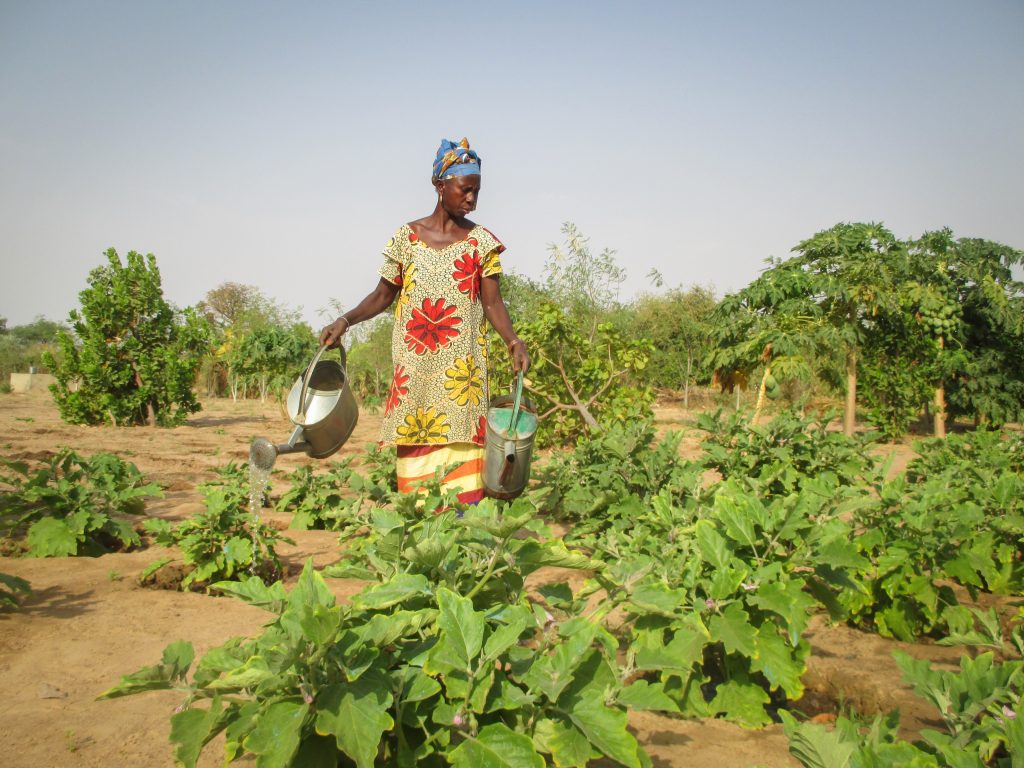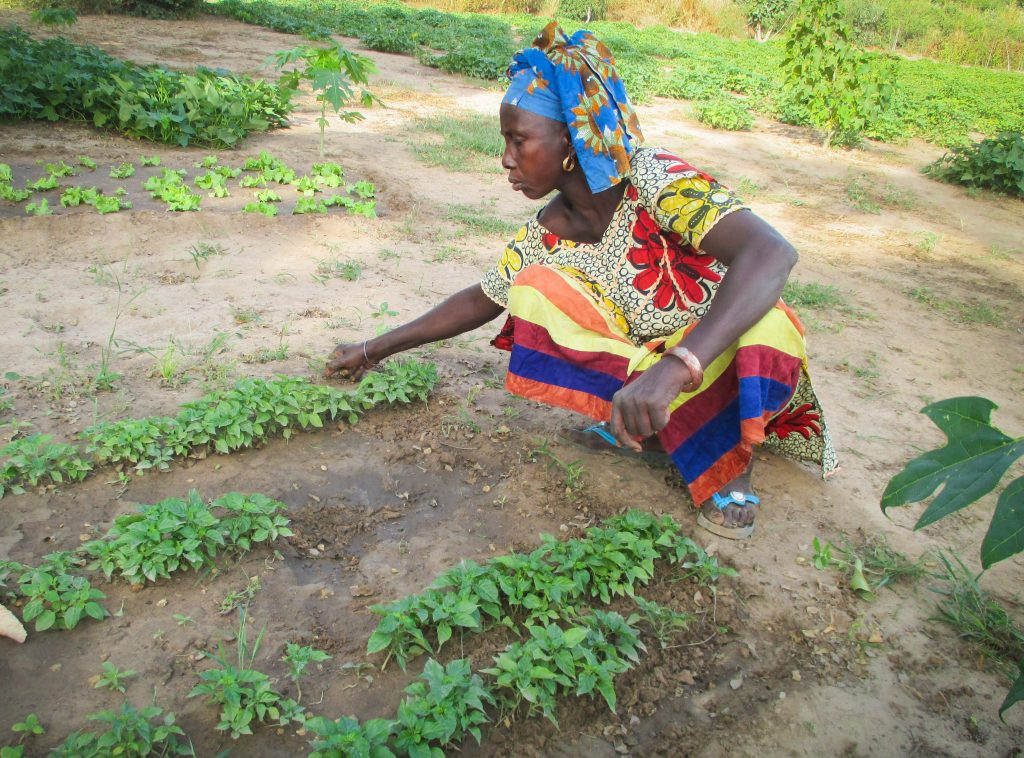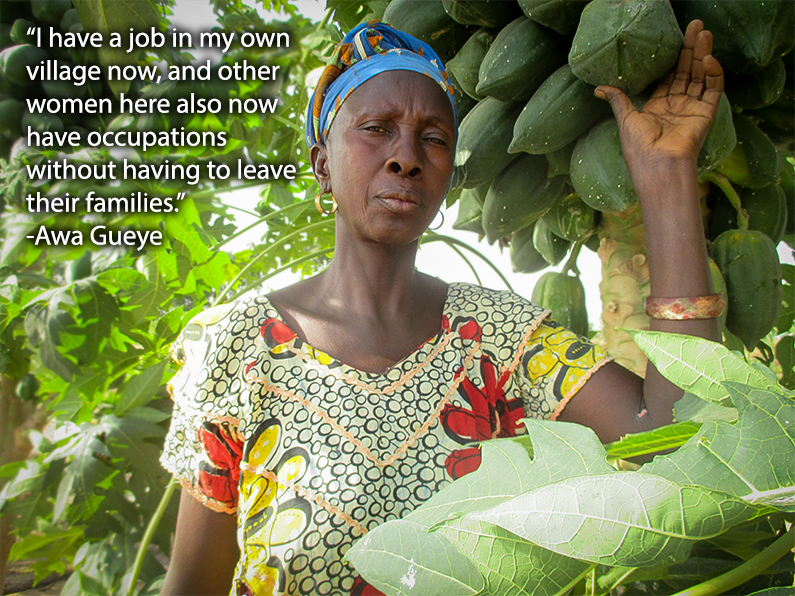In the past, many women in Darou Diadji, including Awa Gueye, 55, didn’t have much of a choice: She could leave her village for weeks, months, or years at a time to try to make a living in the city or abroad, or stay and care for her family with the limited resources available in rural areas. With few opportunities to earn an income or get an education in her own village, there was little hope of changing her situation.
As discussed in last week’s blog post, women often bear the brunt of climate change impacts in poor communities. Desertification makes it difficult to grow crops and access water for drinking, irrigation, and raising livestock; unpredictable weather patterns make agriculture difficult; and changing rainfall patterns cause periods of flooding and drought. As a result, many young men and women leave their rural villages to seek employment elsewhere, leaving their children behind with a single parent, or other families or relatives. Women who stay behind are often left without work.

Awa supports a family of 6 in Darou Diadji, and reports that her involvement in the community garden cooperative has been instrumental in improving her family’s health and income.
For Awa, participating in CREATE!’s programs meant that she could be with her family and still be earning a living at home in Senegal. Awa used to make her income through growing cereal crops, such as millet, during the short 2-3 month rainy season, but that left her with the rest of the year to try to find other ways to support her family.
“Thanks to CREATE! I have a job in my own village now, and other women here also now have occupations without leaving their family,” she says. “We are now able to grow vegetables in the village to eat and sell the rest in the market.” In addition, she adds, “The availability of vegetables in the village has transformed my family’s diet. Since we’ve been eating fruits and vegetables daily we have a reduced risk of many diseases. And the garden has reduced my food expenses because I can get vegetables so easily in the village at a cheap price.”

“CREATE! technicians have taught us many sustainable agricultural techniques, so I now have the capacity to grow vegetables and sell them in the local market,” says Awa.
“I like all of CREATE!’s programs because they are interlinked,” says Awa. The solar powered pump brings up clean water from the village’s rehabilitated well that she can drink and use to water the garden. She can feed her family with the vegetables they grow, and sell the rest on the market. And she can invest her earnings in the Voluntary Savings and Lending Association (VSLA), so that she and her cooperative group can maintain their projects. With all of these programs working together, Awa is confident that their village will be sustainable for generations to come, providing new opportunities for her children that she never had growing up.

